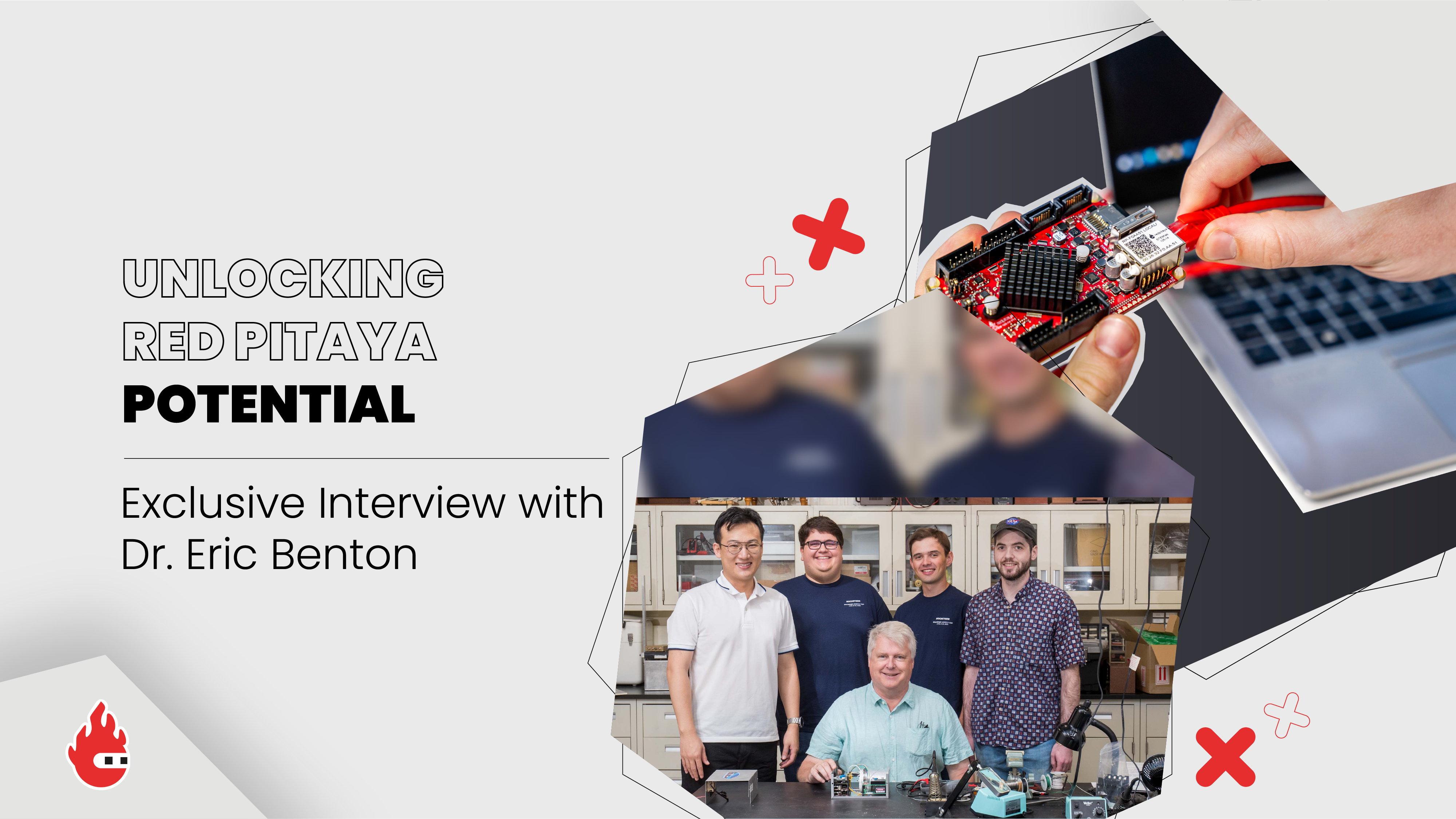Unlocking Red Pitaya Potential: Exclusive Interview With Dr. Eric Benton
-
Posted by
 Red Pitaya Technical Editorial Team
, January 30, 2024
Red Pitaya Technical Editorial Team
, January 30, 2024

We recently had the honor of conducting an interview with dr. Eric Benton, the founding director of the Atmospheric Ionizing Radiation Environment (AIRE) Institute at Oklahoma State University.
In this interview, Dr. Benton, an experienced educator, and researcher, shares his practical insights into the role of Red Pitaya in space exploration and physics education. Join us as we explore his fascinating projects, from deploying radiation detectors containing two Red Pitaya boards in space, to making physics education more accessible in classrooms.
Key Highlights:
Space Exploration Success- The Radiation Physics Laboratory at Oklahoma State University developed SpaceTED , and AirSiD which contain two Red Pitaya boards which function as spectrometers.
- The plan is to produce AirTED and AirSiD in relatively large numbers for use on multiple aircraft and balloons as part of a NASA sponsored project. For this purpose they’ll use the new 4 input version of the Red Pitaya.
Why Red Pitaya for Academic Purposes?
- Cost-Effective Education: Red Pitaya is an affordable and effective tool for hands-on physics education.
- Versatility: It goes beyond measurements and testing, allowing students to build new instruments.
- Ease of Use: Red Pitaya's user-friendly design makes it accessible, even for students without a technical background.
- Supportive Environment: Technical and community support ensure smooth operation and troubleshooting.
Red Pitaya: The Game-Changer for Scientists and Engineers
In a nutshell, Red Pitaya addresses the practical needs of scientists and engineers. It is cost-effective, versatile, easy to use, and comes with reliable support. Join us in exploring the impact and possibilities of Red Pitaya with Dr. Eric Benton in this interesting interview.
About the Red Pitaya Team
The Red Pitaya Technical Editorial Team is a cross-functional group of technical communicators and product specialists. By synthesizing insights from our hardware developers and global research partners, we provide verified, high-value content that bridges the gap between open-source innovation and industrial-grade precision.
Our mission is to make advanced instrumentation accessible to engineers, researchers, and educators worldwide.



